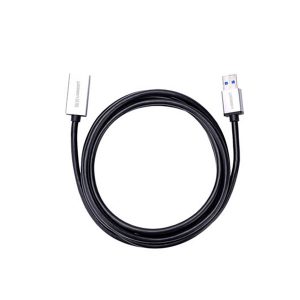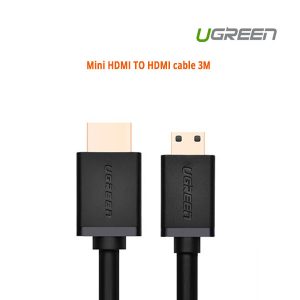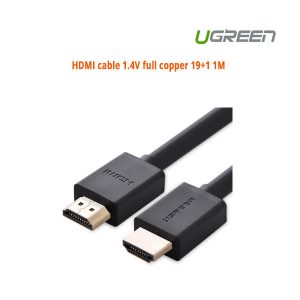PLA 3D Filament Volcano PLA 1.75mm 2300 gram Black
$303.23
5 in stock
Volcano PLA
High heat resistant, high print speed, high impact strength
Volcano PLA is an industrial grade PLA which is engineered for professional applications that require high printing speeds and improved heat resistance and mechanical properties similar to ABS.
Volcano PLA offers the same mechanical and thermal properties – after annealing – as most ABS filaments, but with the biodegradability and ease of printing of PLA. Volcano PLA combines a high heat resistance with high printing speeds and high impact resistance into a PLA-based filament engineered for industrial applications.
Unique features
- High heat resistance of ≥ 95° C after annealing
- Less than 0.3% shrinkage after annealing
- Roughly 8 times less shrinkage compared to competitor materials available on the market
- Engineered to have excellent dimensional accuracy before and after annealing
- Engineered for high printing speeds of > 120mm/s
- Highly crystalline immediately after extruding resulting in increased stiffness and temperature resistance
- Superb mechanical properties comparable to ABS
- Excellent interlayer adhesion
- Biodegradable
- Matte surface finish
General printing guidelines *
|
Nozzle size: ≥ 0.15mm |
Layer height: ≥ 0.1mm |
Flow rate: ± 100% |
|
Print temp: ± 220 – 255° C |
Print speed: High |
Retraction: Yes ± 5mm |
|
Heat bed: ± 0 – 60° C |
Fan speed: 50-100% |
Experience level: Beginner |
*) Above displayed settings are meant as guidance to find your optimal print settings. These ranges in settings should work for most printers, but please do feel free to experiment outside these ranges if you think it is suitable for your printer. There are a lot of different type of printers, hot-ends and printer offsets that it is extremely difficult to give an overall one-size-fits-all setting.
Annealing Volcano PLA
Annealing is a secondary process in which a plastic part is heated up to half of the melt temperature for a moderate period of time before letting the plastic part cool back down to room temperature.
When the plastic part is reheated (annealed) like this, the material relaxes and internal stresses and/or strains are relieved resulting in improved dimensional stability, reduction/removal of dimensional distortion and defects, and improved physical and thermal properties of the printed (and annealed) plastic object.
Step 1
Preheat a convection oven at 110° C (half the melting temperature of Volcano PLA).
It is highly recommended to use a thermometer to calibrate the exact temperature of your convection oven.
Preheating the oven to 110° C is extremely important as your Volcano PLA printed object will then crystalize in such a rapid timeframe that there is almost no time for the material to shrink. This results in a negligible shrinkage percentage of < 0.3% and by that Volcano PLA is unsurpassed when it comes to reduction of shrinkage after annealing.
Step 2
When the oven is preheated to a stable temperature of 110° C then quickly put your Volcano PLA printed object in the oven. Make sure to do this as quick as possible in order to keep the loss of heat reduced to a minimum. Don’t remove any supports (if used) from the printed object when putting it in the oven.
It is recommended to place the Volcano PLA printed object on a flat aluminium sheet/foil or similar flat metal object to obtain a stable/equal heat transmission.
Small objects – 20 minutes timer
For small objects with thin walls and medium infill annealing will take ± 20 minutes
Large objects – 60 minutes timer
For large objects with thick walls and medium/high infill annealing take ± 60 minutes
Step 3
When the object is annealed taking above mentioned duration into account then switch off the oven and let it cool down to room temperature. Do not remove the object before the oven has completely cooled down to room temperature!
Step 4
When the oven is cooled down completely you remove the object from the oven and remove any support material (if used). Your Volcano PLA printed object is now annealed and has all thermal and mechanical properties as displayed in the Technical Data Sheet (TDS).
Filament length
|
ρ: 1.27 g/cc |
50 gr coil |
0.75 Kg spool |
2.3 Kg spool |
4.5 Kg spool |
8 Kg spool |
|
Ø 1.75mm |
± 16.4m |
± 246m |
± 753m |
± 1473m |
± 2619m |
|
Ø 2.85mm |
± 6.2m |
± 93m |
± 284m |
± 555m |
± 987m |
Product export information
|
HS Code: 39169090 |
Description: Monofilament |
Country of origin: the Netherlands |
Compliance *
This filament is compliant to below listed directives and regulations.
- RoHS directive 2011/65/EC
- REACH directive 1907/2006/EC
*) This declaration of conformity to directives and regulations is prepared according to our present standard of knowledge and may be amended if new cognitions are available and applies only for the above described products.
Volcano PLA annealing results versus other high heat resistant PLA
Volcano PLA has a nihil shrinkage with an average of less than 0.3% shrinkage based on thorough in-house testing on standard ISO 180 A specimen. The closest competitor material that we have tested showed an average shrinkage of 2.35% using exactly the same test methods.
Volcano PLA maintains a perfect dimensional stability and nihil shrinkage after annealing resulting in perfectly fitting printed objects which require great precision, whereas competitor materials shrink too much and unstable over dimensions resulting in misfits and prints not being suitable for its purpose anymore after annealing.
As an example to showcase the immense difference in shrinkage and corresponding (mis)fit we have printed duplo blocks which clearly show that Volcano PLA printed duplo blocks still perfectly fit before and after annealing, whereas this isn’t possible anymore when doing the same test with the best/closest competitor material available on the market.
| Weight | 3.2000 kg |
|---|---|
| Dimensions | 55.0000 × 35.0000 × 34.5000 cm |
| Brand | FormFutura |
| Colour | Black |
| EAN | 8718924479087 |
Related products
Electronics > Computer Accessories
Electronics > Computer Accessories
Electronics > Computer Accessories
Electronics > Computer Accessories
UGREEN Full Copper High Speed HDMI Cable with Ethernet 20M (10112)
Electronics > Computer Accessories
Digitalk 2-in-1 Combo Portable A4 1200DPI Photo & Document Scanner (CI-HS510D)
Electronics > Computer Accessories
Electronics > Computer Accessories
Electronics > Computer Accessories



















